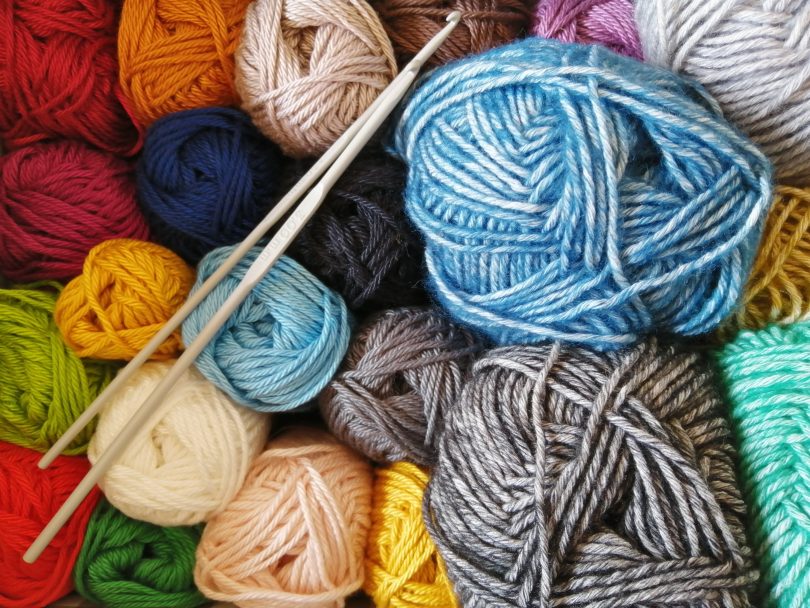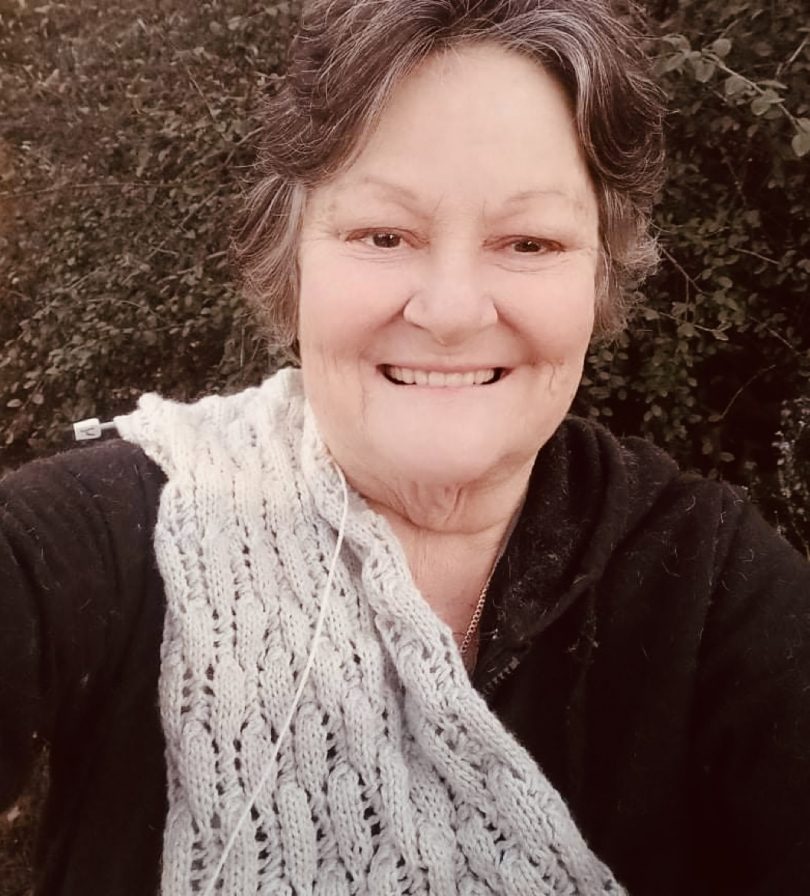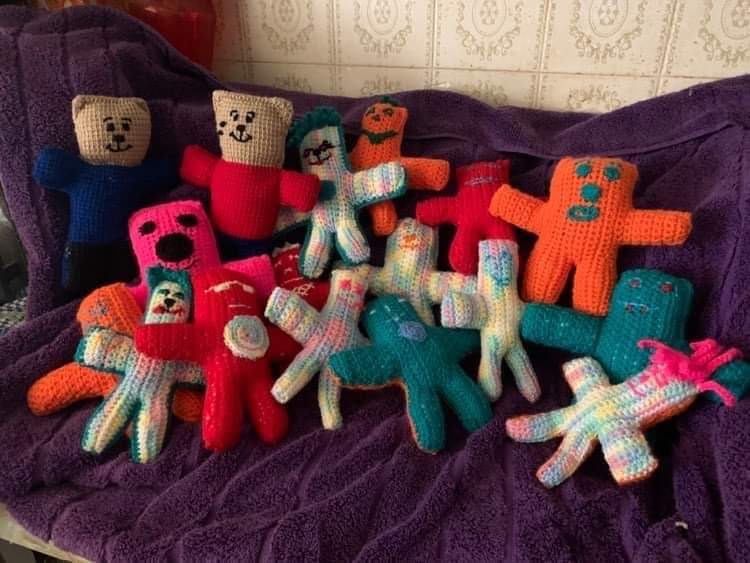
“Serious leisure” activities – such as knitting – are having profoundly positive impacts on people during lockdown, according to a new study from Wagga’s Charles Sturt University. Photo: Supplied.
Robin Stevens of Bendick Murrell in the NSW South West Slopes would be the first to tell you about the benefits of knitting as a hobby.
She’s been doing it since she was five but right now she’s particularly thankful for the positive vibes she gets as she settles down each day with the needles and yarn.
It’s little wonder she started so young as she whiled away the days watching her mum – a prolific knitter and crocheter.

Robin Stevens of Bendick Murrell, near Young, says she spends up to four hours a day knitting and it has been especially fortifying during lockdown. Photo: Supplied.
“I was curious and amazed how my mum could knit so easily,” she said.
And while this pastime isn’t new to her, she’s grateful she has something to focus on during lockdown which can involve up to four hours a day.
“I suffer with depression and with all the publicity about COVID – it’s been a bit difficult,” she told About Regional.
“But I find because I have to concentrate on my pattern, it helps me forget about other stresses.”
Stories abound of people taking up hobbies as a means of passing time during COVID lockdown periods, but the benefits of hobbies are far more deep-seated than that last batch of marmalade you preserved or that collection of Lego trucks you just completed.
A lecturer at Charles Sturt University’s School of Information and Communication Studies in Wagga Wagga, Dr Yazdan Mansourian, has been studying what he terms “serious leisure” for the past four years.

Some of Robin’s very clever knitted results. Photo: Supplied.
Far from being a whimsy or, indeed, a compulsion, Dr Mansourian said ‘serious leisure’ is when people passionately engage in a meaningful hobby or voluntary activity for the long-term.
This could range from coin or stamp collecting, photography, gourmet cooking, food blogging, volunteer fundraising, environmental activism, birdwatching, genealogy, gardening or even visiting museums or art galleries. These activities are engaged in for enjoyment, not monetary gain.
“During the past 40 years or so, information science scholars mainly focused on the problematic aspects of human information behaviour in work-related, professional or educational settings,” Dr Mansourian said.
“And we have numerous publications about topics like information overload, information anxiety, information poverty, digital divide… the list goes on”.
READ ALSO: A stitch in time: how a family heirloom inspired a new generation of knitters
But in 2017, Dr Mansourian came across a paper exploring the positive sides of this process.
After reading the paper, he changed his research direction to explore the positive and pleasurable facets of human information behaviour that lead to more meaningful purposes.
His project, titled ‘Human information behaviour in the context of serious leisure’, looks at the positive sides of “serious leisure”, such as the pleasure of information-seeking and the rewarding feeling of information-sharing.

Dr Yazdan Mansourian’s research shows that “serious leisure” can enhance cognitive, emotional and social wellbeing. Photo: Supplied.
Work and study-related information seeking an acquisition are sometimes considered tedious tasks, Dr Mansourian explained, but in “serious leisure” these tasks are often reported as enjoyable experiences.
“It’s a productive topic in human information behaviour because it entails the pursuit of knowledge and involves various information activities including seeking, searching, browsing, retrieving, saving, organising, sharing, evaluating, using, producing and disseminating,” he explained.
This might not be news to most people, but Dr Mansourian’s research also shows that serious leisure can enhance cognitive, emotional and social wellbeing.
His research particularly focused on the art of bonsai growing and how, during lockdown, those hobbyists found new sources of purpose and passion – it helped people deal with challenging times and allowed them to share lived experiences via social media.
“During the pandemic, when people can’t meet in person, they use digital platforms to stay connected and share hobby-related information,” Dr Mansourian said.
“People from different parts of the world can create ‘virtual hubs’ or communities of interest around their hobbies.”
“The social benefits of serious leisure are more important during this challenging time,” he said.
Knitting, quilting and weaving are among the most popular hobbies in regional NSW.
Robin Stevens says she couldn’t recommend knitting – or crochet – more.
“Plus it’s very helpful for the arthritis as well,” she said.
People wishing to take up knitting could start here.






